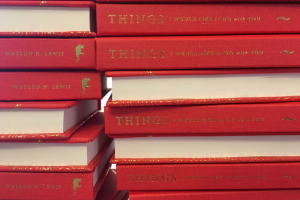As we step in to the holidays many of us will be spending time with our various inherited, adopted and chosen families. While there can be much joy during these times, there can also be challenges. Today I want to share some tips for more joy and ease at holiday gatherings, and a few especially for including loved family members with dementia in your upcoming gatherings.
First off ~ please remember we are all typically doing the best we can in the moment. Rarely is someone intentionally making moments more difficult just for the fun of it. (And, if they are…I suggest you sneak a plate of mashed potatoes under their bum as they sit down.)
If you feel friction rising or tension in your chest, try to take a moment and check in with yourself. How are you feeling? Are you feeling unappreciated, unsupported or irritated? Are you Hungry, Angry, Lonely or Tired? Think of HALT as reminder a tool for these common triggers. Identifying the trigger before it takes over is kind of magical, honestly. A few deep breaths and a brief pause to re-center yourself in your intentions for this gathering can create the possibility of the loving connections we desire.
Now, here are a few tips and ideas when someone with cognitive change is part of your holiday.
ENGAGE
Feeling included, involved and having a sense of purpose is core to belonging and feeling connection. If Mom can no longer prepare the Thanksgiving dinner, she might still be able to scrub and peel the potatoes.
Try “Hey Mom, can you please help me and clean these potatoes?” and show her the sink with the potatoes, scrub brush and bowl for her to put them in once they are clean. Demonstrate cleaning one which gives the additional visual cueing that can lead her toward a familiar process from her past. Once all the potatoes are scrubbed, move to the next step with the peeler, the waste container, and the bowl for peeled potatoes – again you peel one first for her to see the visual cue.
Important– please only give directions or requests ONE STEP AT A TIME. Include VISUAL CUES and use FEWER WORDS.
These various means of verbal, visual and kinesthetic cues create opportunity for successes, which can feel wonderful to someone who usually has things done for them rather than being a part of activities!
EMBRACE
Do you have a loved one living alone in retirement or in an assisted living community? Often elderly individuals, especially those living alone or in care facilities, are essentially starved for touch.
TOUCH is one of the vital parts of human connection for the health of our spirit, our senses of vitality and connectedness, as well as for the medical benefits that have been studied – touch can reduce blood pressure, lower the pulse, and can calm the body, which puts less stress on our hearts.
Consider your loved one with dementia and their personal preferences. Offer a hand massage with some nice lotion as an opportunity to sit quietly when the festivities appear to be over-stimulating to them. If they have never been someone who enjoys being touched, a soft blanket, a lavender-infused neck warmer or personally-knit scarf (like one of these cozy beauties my mom knit) can be a pleasant sensory comfort to them.
All senses can be used for comfort, depending on the individual. The many smells of a Thanksgiving dinner can bring back memories, even if they may not be able to express it. Do you know that your uncle’s mom always put peppermint in the holiday coffee? Try this sensory treat for him! The combination of scent, smell, taste and even touch of the warm mug might just help him access some enjoyable and comforting familiar moment.
ENJOY
SLOW DOWN. DO LESS. EXPECT LESS. RELAX and PAUSE. You might say “No Way!” to this one…yet let me suggest you give this approach a try. Possibly the biggest gift in our time with our loved ones is simply BEING, rather than DOING.
We build many traditions and “must haves” in our accumulated years of holidays – yet none of that is a fact or a rule. It is simply experience, preference, familiar and our thoughts.
Pause for a moment. Close your eyes (after reading the rest of this sentence…), and recall a holiday memory that lifts your heart, curls the corners of your mouth, eases that tightness in your neck. Once you have that memory, and hopefully the lightness in your body that really brings you back, imagine inviting that joy once again.
One of my memories like this is a “holiday memory” that happened to occur in May for my Gram’s birthday. When we let go of expectation and rules about calendars, seasons, etc., we allow in moments of dementia to delight in with our family member.
I sat with my grandmother and spread Thanksgiving and Christmas magazines out across the patio table. We tore out pages, laughed at the Beer Can Turkey, and gathered pictures of wreaths. Gram hardly had language at this point, yet the images of wreaths were clearly drawing her attention and delight. In my next visit I brought things to make wreaths and Gram’s hands – often inactive these days – began to thread stems of greenery in to the wreath frame like a familiar dance, it was glorious! She was engaged and giggly in the creation for over an hour.
This year, consider letting Friday breakfast be simple cold cereal and leftovers rather than the usual big production. Instead of hours at the stove and sink, sit with your loved one, go through old photos or sing some familiar songs. You may get really tired of “You Are My Sunshine”…until you see your minimally-communicative loved one start to smile and sing along!
Remember Uncle Joe’s stories of how Grandpa was a heck of a Texas Hold’Em player in his days in the Army? Get out the poker chips and deck of cards and see how Grandpa responds!!
This holiday, instead of being crazed and busy and exhausted and staring at a to-do list, how about you try something a little different? Be creative. Be present. Be with your loved one in the moment. This current and precious moment.
Did you try something new to Set a Place for Dementia at Your Holiday Table?
I’d love to hear your stories ~ Please Share!







Read 0 comments and reply